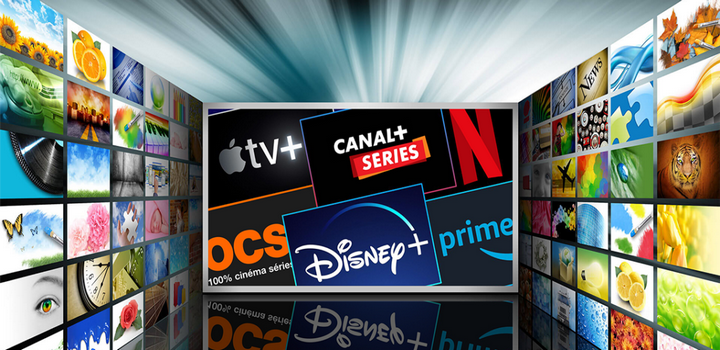The way we consume television has undergone a seismic shift in the last few decades, transitioning from traditional broadcasting to digital streaming. One of the most significant innovations driving this change is Internet Protocol Television (IPTV). This technology is redefining how viewers access and experience their favorite shows, movies, and live events. In this article, we’ll explore what british iptv is, its advantages, the technology behind it, and what the future holds for this evolving medium.
What is IPTV?
IPTV stands for Internet Protocol Television. Unlike traditional cable or satellite television that relies on terrestrial signals, IPTV delivers content over the internet. This allows users to stream shows and movies directly onto their devices, whether it’s a smart TV, tablet, smartphone, or computer. IPTV can offer both live television broadcasts and on-demand content, making it a versatile choice for viewers.
How Does IPTV Work?
At its core, IPTV works by sending television signals through the same internet protocol used for data transfer. Here’s a simplified breakdown of how the process unfolds:
- Content Acquisition: IPTV providers source content from various providers, which may include live channels, recorded shows, and movies.
- Encoding and Compression: The acquired content is encoded and compressed to ensure efficient transmission over the internet. This step is crucial to maintain quality while minimizing buffering.
- Delivery through Streaming Protocols: Once the content is prepared, it’s delivered to users via different streaming protocols. Two common protocols used are HTTP Live Streaming (HLS) and Real-Time Streaming Protocol (RTSP). These protocols help in streaming content smoothly without significant delays.
- User Access: Users access the content through an IPTV set-top box, app, or website, allowing them to watch live TV, browse a library of on-demand movies, or catch up on missed shows.
Advantages of IPTV
- Flexibility and Convenience: One of the most appealing aspects of IPTV is the flexibility it offers. Viewers can watch their favorite shows on multiple devices and choose when to watch them, breaking free from the constraints of traditional broadcasting schedules.
- Content Variety: IPTV services often provide access to a vast library of content, including international channels, niche programming, and on-demand films that may not be available through traditional cable.
- Cost-Effectiveness: Many IPTV services are more affordable than traditional cable packages. Viewers can choose from various subscription models and only pay for the content they want to watch.
- Interactive Features: IPTV can incorporate features such as video on demand, catch-up TV, and even interactive applications, providing a richer user experience compared to standard television.
- Higher Quality: With the capability of delivering high-definition (HD) and even ultra-high-definition (UHD) content, IPTV can offer superior picture and sound quality compared to traditional television.
Challenges Facing IPTV
Despite its many advantages, IPTV faces several challenges:
- Internet Dependency: As IPTV relies on a stable internet connection, poor connectivity can lead to buffering and interruptions, negatively impacting the viewing experience.
- Content Licensing Issues: Providers must navigate complex licensing agreements to offer certain channels or shows, which can limit content availability.
- Piracy Concerns: The rise of illegal IPTV services has raised concerns over piracy and the protection of copyright, prompting legal actions and regulations that legitimate providers must comply with.
- User Interface and Experience: While many IPTV platforms are improving their interfaces, there’s still a need for user-friendly designs that allow viewers to navigate vast content libraries easily.
The Future of IPTV
The future of IPTV appears promising, driven by advancements in technology and shifting consumer preferences. Here are a few trends likely to shape the IPTV landscape:
- Integration with Smart Home Devices: As smart home technology continues to grow, IPTV services are expected to integrate more seamlessly with devices like smart TVs, voice assistants, and IoT devices.
- Personalization and AI: IPTV providers will increasingly leverage artificial intelligence to offer personalized content recommendations, enhancing user engagement and satisfaction.
- Expansion of 5G Technology: The rollout of 5G networks will significantly improve streaming quality and reduce latency, allowing for a more seamless IPTV experience, even on mobile devices.
- Rise of Niche Content: As traditional media becomes more fragmented, IPTV platforms will likely expand to include niche programming that caters to specific audiences, from sports enthusiasts to independent filmmakers.
- Hybrid Models: The future may see hybrid IPTV models that combine elements of traditional broadcasting with internet streaming, offering viewers more choices and flexibility.
Conclusion
IPTV represents a significant advancement in how we consume television, offering viewers unprecedented flexibility, variety, and quality. As technology continues to evolve, so too will the possibilities for IPTV, shaping the future of entertainment. Whether you’re a casual viewer or a media enthusiast, IPTV is a phenomenon worth keeping an eye on as it transforms the way we engage with content in the digital age.

